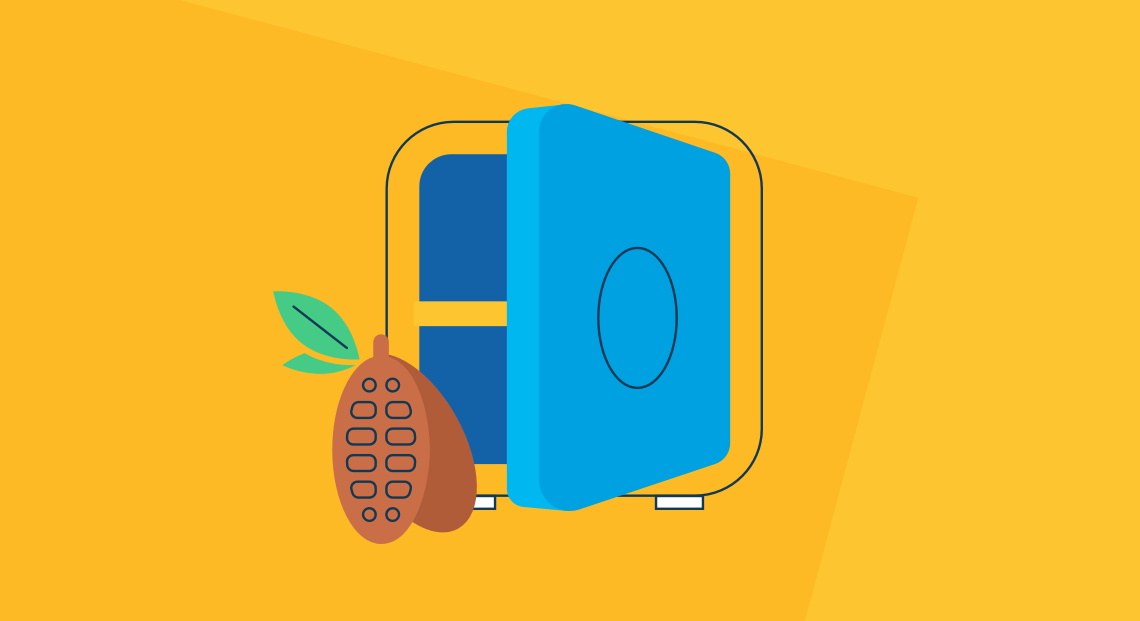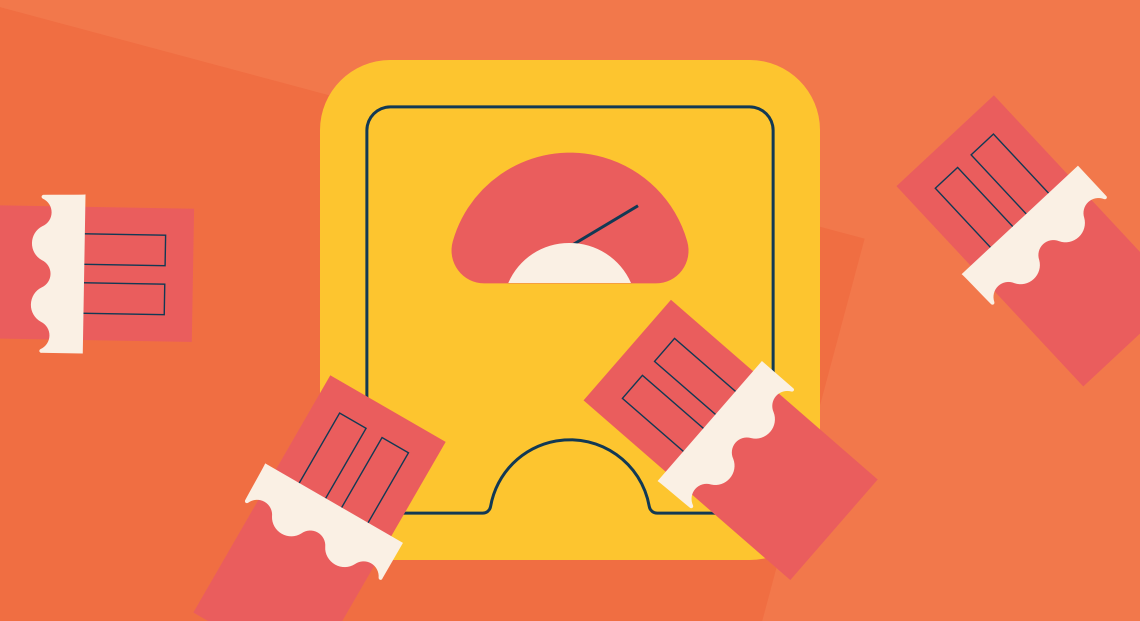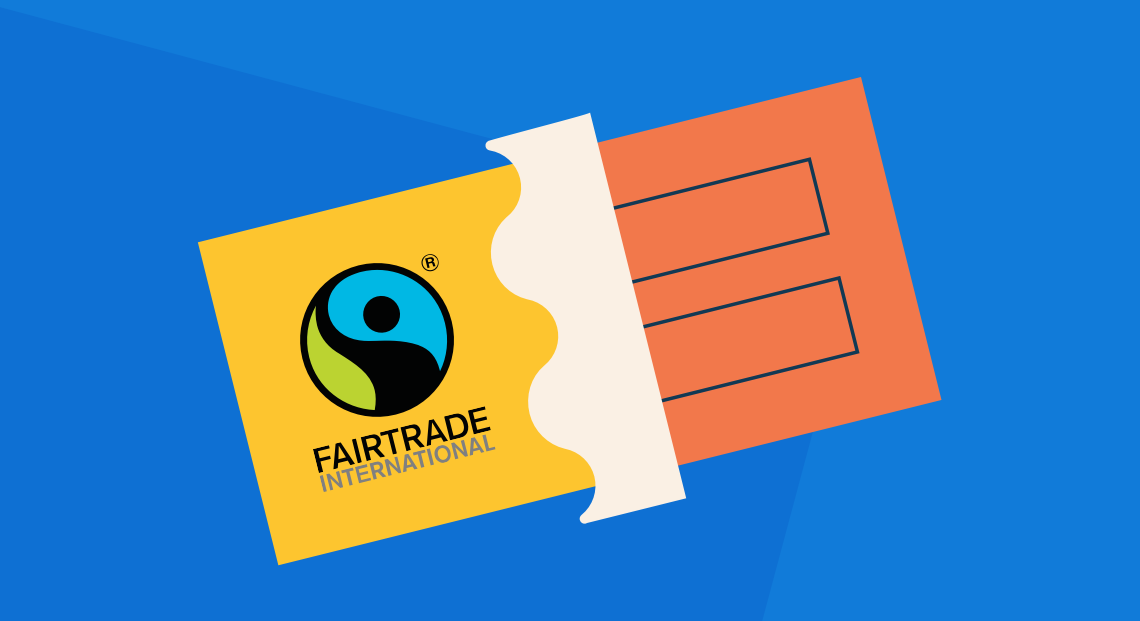It’s nice to enjoy a little chocolate over Easter, or at any time of the year, for that matter. Easter eggs are tasty and fun, but you can also pack in a little financial understanding by talking to your kids about chocolate. Here are a few good conversation starters.
Real chocolate money
We all know about chocolate coins, but did you know that one ancient Central American civilization may have used chocolate beans as real currency? Joanne P. Baron, an American researcher and expert on ancient Mayan culture believes that the Mayans may well have used cocoa beans as a kind of cash, or as part of a barter system, when trading.

Ask the kids:
If you couldn’t use real money, what would you and your friends use instead? Toys? Robux? Chocolate? What sort of difficulties would you come up against?
How chocolate turned into eggs
Chocolate eggs were once very fancy. They first appeared at the ccourt of the French King Louis XIV, a little over 300 years ago, though the ones made by the king’s chefs probably weren’t much like the eggs kids enjoy today. The first mass-produced factory eggs were made by the British company JS Fry & sons in 1873; Fry also created the first factory-made, moulded chocolate bar, a few years earlier. This British firm pioneered lots of ways of making chocolate, such as grinding cocoa beans with a steam engine, which meant they could lower their prices. Their chocolate cost less, and wasn’t just for kings!
Ask the kids:
What’s the easiest way to make lots of chocolate, with machines, or using royal chefs? Which results in a more affordable egg? Which one tastes better, do you think?
Too much chocolate
A little bit of chocolate is nice every now and then, but too much is bad for us. Some countries try to stop people from eating lots of sugary, fatty foods, such as chocolate, by putting a special tax on them, which pushes the price up, making us buy less.

Ask the kids:
Is it fair to make foods such as chocolate more expensive, if it means we’re a bit healthier? Are there any downsides to taxes on things we like? If the government gets more money from these sorts of taxes, what should they spend it on?
Is chocolate recession proof?
Some people say that chocolate is recession proof. That means people will still buy it, even when the economy is really bad. You see, chocolate is quite cheap, but still seems like a luxury, and can make people feel good, even if they haven’t got that much money, and the future looks uncertain. So, is that what happened when the economy froze during Covid? Well, premium chocolate makers such as Lindt did well during the pandemic. Maybe everyone needed something sweet to make them feel better?
Ask the kids:
If you were short of money, what would you cut back on? What would you still buy, even if things were looking bad? Sometimes, is it worth buying something you really don’t need, if it makes you feel better?
Chocolate and Fairtrade
How can you be sure the person who helped make your chocolate enjoyed it as much as you? Cacao, the main ingredient for chocolate, is grown in West African countries such as Ghana and Ivory Coast. In those places, workers sometimes find it difficult to get a good price for their crop. Fortunately, organisations such as Fairtrade make sure their farmers are paid a good, minimum price for their crop, plus a little bit extra on top. This money goes towards education, food and healthcare.

Ask the kids:
Does it feel good to know the people who made your favourite chocolate bar got a good amount of money? Do you mind paying a bit more? What could you do if you thought the people who made your bar were getting a bad deal?
Did you like this? Then you can try our other articles, what wizards teach kids about money, and what movies teach kids about money.
Got any ideas or suggestions for what we cover next? Let us know at hello@roostermoney.com and it might get featured in a future blog!